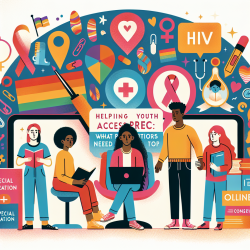The intersection of homelessness and alcohol dependence presents complex challenges that require nuanced understanding and strategic intervention. A recent study titled "Motives for alcohol use, risky drinking patterns and harm reduction practices among people who experience homelessness and alcohol dependence in Montreal" provides valuable insights into this issue. This blog aims to help practitioners improve their skills by implementing the outcomes of this research or encouraging further exploration.
Research Overview
The study conducted in Montreal, Canada, involved 34 participants who were experiencing homelessness and alcohol dependence. Through semi-structured interviews and focus groups, researchers explored the motives for alcohol use, risky drinking patterns, and harm reduction practices among this population. The findings highlight the complex interplay between these factors and offer a foundation for developing more effective interventions.
Key Findings
- Motives for Alcohol Use: Participants reported using alcohol to cope with painful memories, harsh living conditions, social isolation, and for enjoyment.
- Risky Drinking Patterns: Common patterns included binge drinking, mixing alcohol with drugs, consuming non-beverage alcohol, insufficient supply to prevent withdrawal, and public drinking.
- Harm Reduction Practices: Strategies included planning consumption amounts, keeping a backup supply to prevent withdrawal, hiding while drinking, and using stimulants to counteract excessive intoxication.
Implications for Practice
The study's findings underscore the importance of understanding the underlying motives and environmental factors influencing alcohol use among the homeless. Practitioners can utilize these insights to tailor interventions that address both individual needs and broader systemic issues. Here are some suggested strategies:
- Develop Comprehensive Support Systems: Interventions should integrate housing solutions with access to psychological services to address trauma and mental health issues.
- Create Safe Drinking Spaces: Implement "wet services" like managed alcohol programs that allow safe indoor consumption while providing support services.
- Enhance Social Connections: Encourage programs that foster healthy social relationships to reduce reliance on alcohol as a social tool.
- Educate on Harm Reduction: Provide accessible materials on safe drinking strategies tailored to the unique needs of this population.
Encouraging Further Research
The complexity of alcohol use among the homeless necessitates ongoing research to refine intervention strategies continually. Practitioners are encouraged to engage with current studies and contribute to expanding the knowledge base. By doing so, they can ensure that policies and practices remain relevant and effective in addressing this multifaceted issue.
To read the original research paper, please follow this link: Motives for alcohol use, risky drinking patterns and harm reduction practices among people who experience homelessness and alcohol dependence in Montreal.










